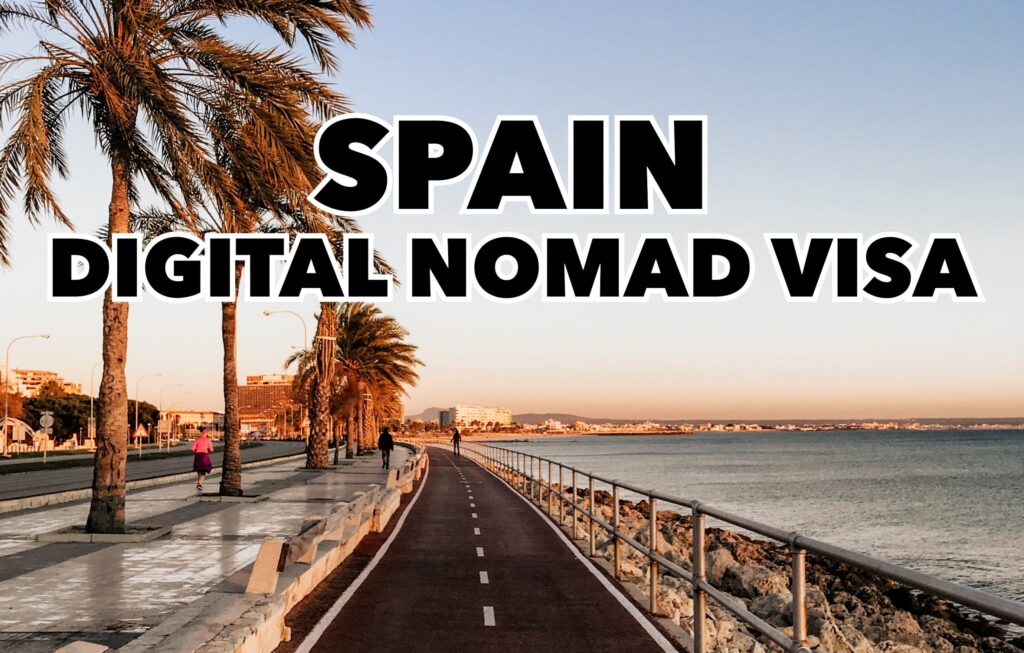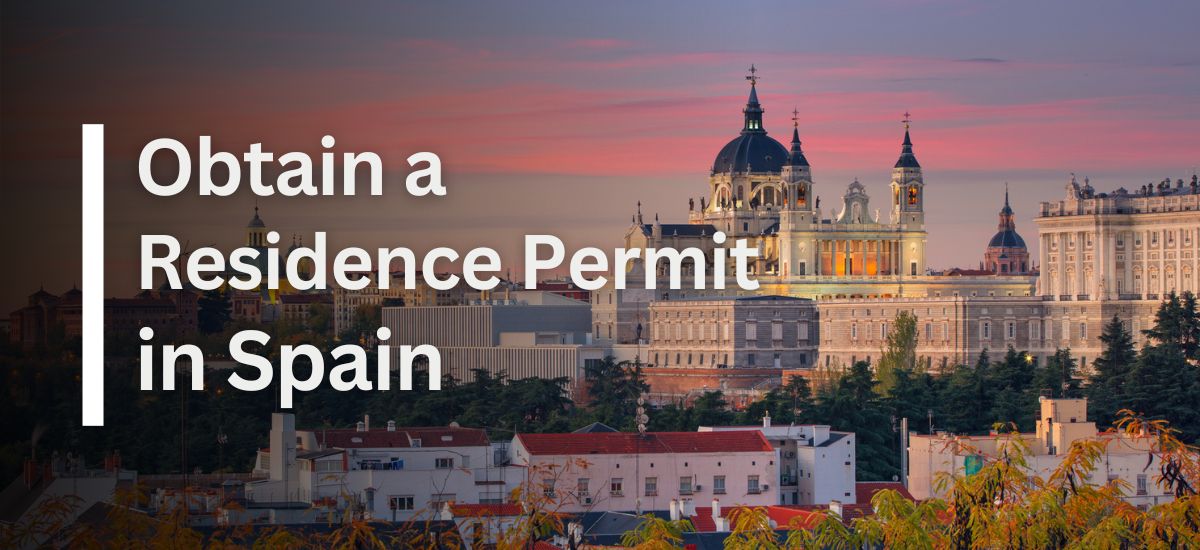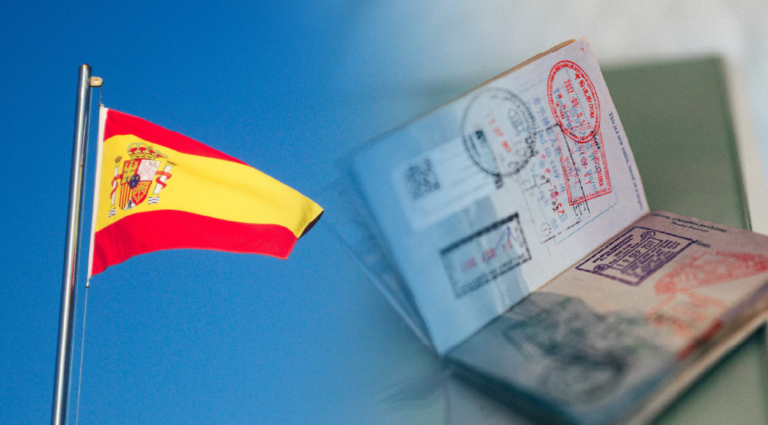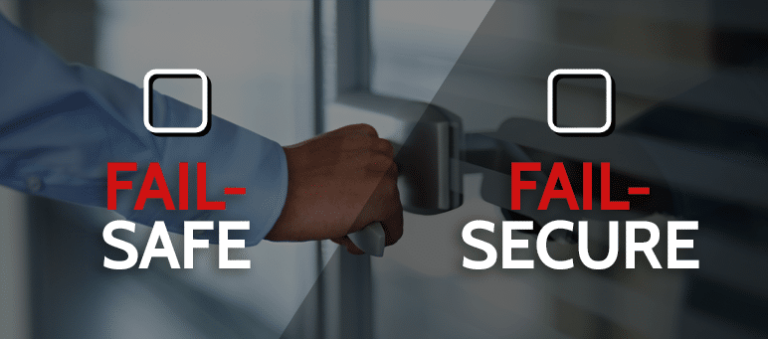How to Get Residency in Spain as a Digital Nomad and Start Living Your Dream Life?
Are you wondering how to get residency in Spain as a digital nomad? With Spain’s stunning landscapes, rich culture, and an inviting climate, it’s no wonder digital nomads are flocking to this European paradise. If you’re a remote worker who dreams of setting up shop in Spain, you’re in luck—Spain offers a pathway to residency tailored specifically to digital nomads. Let’s dive into how you can make this dream a reality, the steps you need to take, and the requirements for securing your Spanish residency as a remote worker.
What Is the Spain Digital Nomad Residency Visa?
The Spain Digital Nomad Residency Visa is a special visa introduced by the Spanish government to attract remote workers and freelancers from outside the European Union. It’s designed for non-EU citizens who want to live in Spain while working remotely for a company or clients based outside of Spain. This visa allows eligible individuals to legally reside in Spain for an extended period, providing an excellent opportunity for digital nomads to enjoy the country’s vibrant culture, diverse landscapes, and high quality of life while continuing their work.

Purpose and Function of the Digital Nomad Visa
The main purpose of the Spain Digital Nomad Residency Visa is to offer a legal framework for remote workers to live in Spain without being tied to a local job or employer. Unlike traditional work visas, this visa allows you to work remotely for a company outside of Spain or operate as a freelancer with international clients. This flexibility gives digital nomads the freedom to live in Spain while maintaining their remote work obligations.
The visa is part of Spain’s broader effort to attract talent from around the world and to boost its economy by making the country an attractive destination for remote workers. The initiative aims to appeal to professionals in tech, design, marketing, writing, and other industries that can be performed remotely.
Eligibility Requirements for the Digital Nomad Visa
To be eligible for the Spain Digital Nomad Residency Visa, applicants must meet specific criteria:
- Remote Employment: Applicants must be employed by a company outside of Spain or be freelancers with clients based abroad. This ensures that applicants are not competing for jobs within the Spanish labor market.
- Minimum Income: Applicants must demonstrate that they have a steady income that meets the minimum threshold set by the Spanish authorities. This income should be sufficient to support your living expenses in Spain, and it is typically higher than the average Spanish salary.
- Health Insurance: Applicants must have valid health insurance that covers medical expenses in Spain, either through a private insurance provider or an international plan that meets Spanish requirements.
- Other Basic Documentation: This includes a valid passport, application form, proof of income, employment contracts, and any additional documents that may be required.
Benefits of the Digital Nomad Visa
- Legal Residency: The Digital Nomad Visa allows non-EU citizens to live in Spain legally while working remotely. You don’t have to worry about visa overstays or legal issues while enjoying life in Spain.
- Work and Travel Flexibility: One of the major benefits of the Digital Nomad Visa is the ability to work from anywhere in Spain, whether you’re based in vibrant cities like Madrid or Barcelona, or if you prefer quieter coastal towns or rural areas.
- Family Inclusion: The visa allows you to bring your spouse and children with you, making it a great option for families of remote workers.
- Access to the Schengen Area: As Spain is a member of the Schengen Zone, holders of the Digital Nomad Visa can travel freely to other countries within the Schengen Area for short trips.
- Tax Benefits: Spain offers potential tax incentives for digital nomads, especially under certain tax residency programs. Remote workers may be able to take advantage of favorable tax rates, depending on their situation.
How to Apply for the Digital Nomad Visa?
The application process for the Spain Digital Nomad Residency Visa involves several key steps:
- Prepare Your Documents: Gather the necessary documents, such as proof of remote employment, income, health insurance, and a clean criminal record. Make sure all documents are up-to-date and meet the Spanish authorities’ requirements.
- Submit Your Application: Applications must be submitted to the Spanish consulate or embassy in your home country. Depending on your country of residence, you may also be able to apply online.
- Wait for Approval: After submitting your application, you’ll need to wait for the Spanish authorities to review and approve your visa. This process can take a few weeks to a few months, so be patient.
- Move to Spain: Once your visa is approved, you can move to Spain and start working remotely. You may need to register with local authorities upon arrival and update your residence status.
Given the complexities involved in the visa application process, seeking help from an experienced legal professional, such as Marfour International Law Firm, can be beneficial. Marfour specializes in immigration law and can provide guidance through every step of your application, helping you gather the right documents, understand the visa conditions, and ensure a smooth process.
How to Get a Spanish Residency as a Digital Nomad?
If you’re a digital nomad looking to make Spain your new home, you’ll be happy to know that Spain has created a pathway for remote workers from outside the European Union to obtain residency through the Digital Nomad Visa. This visa allows you to live and work in Spain legally while continuing your remote work for companies or clients outside the country. Here’s a simple guide on how to get Spain residency as a digital nomad.

1: Meet the Eligibility Requirements
Before you start the application process, make sure you meet the basic eligibility criteria for the Spain Digital Nomad Visa. These include:
- Remote Employment: You must be employed by a foreign company or be a freelancer with international clients. The key requirement here is that your income comes from outside of Spain.
- Minimum Income Threshold: You must show proof that you have a stable income that meets or exceeds the minimum income set by Spain’s authorities. The exact amount may vary, but generally, you’ll need to demonstrate that you can financially support yourself while living in Spain.
- Health Insurance: You’ll need to provide proof of valid health insurance that meets Spain’s requirements. This can either be an international health insurance plan or a private insurance plan in Spain.
- Valid Passport and Other Documents: You must have a valid passport, and you will likely need to submit proof of your employment, proof of income, and proof of accommodation in Spain.
2: Gather the Necessary Documents
Once you confirm that you meet the eligibility criteria, start gathering the documents you’ll need for your application. The typical documents required for the Spain Digital Nomad Visa include:
- A completed visa application form
- A valid passport with at least six months of validity
- Proof of remote employment or freelance work
- Bank statements or contracts showing your income for the past few months
- Proof of health insurance
- Police clearance certificate (criminal record check)
- Proof of accommodation in Spain (for example, a rental contract)
- Any other documents that may be required by the Spanish consulate in your country
3: Submit Your Application
With your documents ready, you’ll need to submit your application to the Spanish consulate or embassy in your home country or country of residence. Some consulates may allow you to apply online, but it’s generally recommended to check with your local consulate for specific procedures.
It’s important to note that the application process may take several weeks to a few months, so plan accordingly. Spain may also require an in-person interview as part of the visa process.
4: Wait for Your Application to Be Processed
After submitting your application, you’ll need to wait for the Spanish authorities to process your visa. During this time, the consulate may ask for additional information or clarification. Be sure to respond to any requests promptly to avoid delays.
If your visa is approved, you’ll receive an approval notice, and you can then move forward with your plans to move to Spain.
5: Move to Spain and Register as a Resident
Once you’ve received approval for your Digital Nomad Visa, you’ll be able to move to Spain and officially start your residency. Upon arrival, you’ll need to register with the Spanish authorities, typically at a local town hall (known as the “ayuntamiento”), and obtain a residence card. This card is proof that you’re legally residing in Spain.
You may also need to apply for a NIE (Número de Identificación de Extranjero), which is a foreigner identification number required for tax purposes, opening a bank account, and other official processes in Spain.
6: Enjoy Your Life in Spain as a Digital Nomad
With your residency in place, you can now enjoy all the benefits that come with living in Spain as a digital nomad. You’ll have access to the country’s healthcare system, the ability to travel freely within the Schengen Area, and the opportunity to immerse yourself in the vibrant culture and lifestyle Spain offers.
Whether you choose to live in bustling cities like Madrid or Barcelona, or prefer the peaceful countryside, Spain provides a diverse and welcoming environment for digital nomads.
What Are the Benefits of Digital Nomad Residency in Spain?
One of the biggest perks of getting digital nomad residency in Spain is the opportunity to live in one of the most beautiful and culturally rich countries in Europe. Here are some key benefits:

Work From Anywhere
With Spain’s digital nomad visa, you can work from anywhere in the country, whether that’s a beach in Barcelona, a quiet café in Madrid, or a co-working space in Seville.
Access to Health Care
As a resident in Spain, you’ll be eligible for the country’s excellent public healthcare system. You’ll also have the option of using private healthcare insurance if you prefer.
Affordable Cost of Living
Compared to other European countries, Spain offers an affordable cost of living, especially in cities like Valencia, Seville, and Granada. You’ll find that your salary can stretch much further here than in cities like Paris or London.
FAQs
How long does it take to get Spain residency as a digital nomad?
The application process can take anywhere from 10 working days to 20 working days, depending on how quickly you gather the required documents and submit them.
Can I apply for a Spain digital nomad residency while living in Spain?
No, you must apply for the digital nomad visa from your home country or the country where you currently reside.
Can I bring my family with me on the digital nomad visa?
Yes, you can bring your spouse and dependent children with you if they meet the visa requirements.
Can I extend my Spain digital nomad visa?
Yes, you can extend your visa for another year, and after that, you may be eligible to apply for long-term residency.
Conclusion
Living and working in Spain as a digital nomad offers a wonderful opportunity to balance your career with an incredible lifestyle in one of Europe’s most attractive countries. Getting digital nomad residency in Spain is a manageable process, as long as you meet the key requirements and follow the application steps carefully.
From the sunny beaches of Costa Brava to the vibrant streets of Madrid, you’ll be able to enjoy both a great work-life balance and access to Spain’s excellent healthcare and social systems. If you want to start your journey, check out Spanish Digital Nomad Visa for expert help and guidance from Marfour International Law Firm. So, if you’re asking how to get Spain residency as a digital nomad, the answer is simple: follow the steps, meet the requirements, and get ready to start your Spanish adventure!






